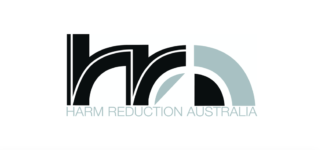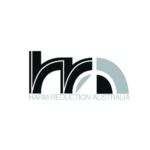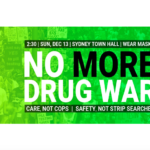Drug Law Reform Is Desperately Needed, Yet Berejiklian Refuses to See Reason

The Australian response to the COVID-19 pandemic for the most part has been successful and a very welcome change as science and public health advice is given its due prominence in such health policy decisions.
The need for greater investment and reform in the health, mental health and welfare sectors is also being met with a sensible realisation about how evidence can be used effectively.
It is just a pity that the exception to this rule continues to be drug policy. The NSW cabinet’s inability to even agree on some timid reform of our drug laws this week is just another example of government failure to heed the evidence.
The lack of support and logic in the decision-making on drug issues is reaching the heights of absurdity. This is headlined by the proposed adoption by some in NSW for the failed USA style conspiracy laws whereby those arrested get a better deal from prosecutors by informing on others.
This is what contributed to the explosion of people arrested and imprisoned for minor drug use offences in the USA – with many falsely accused.
In 2019 and 2020, the NSW Premier received two painstakingly researched and comprehensive arguments for change to our drug laws and policies from the Deputy Coroner and a Special Commissioner – the latter whom she personally appointed.
Despite all the evidence meticulously presented in the reports, a trial of pill testing – already successfully implemented in the ACT – could not be supported in NSW due to “lack of evidence”.
Yet, remarkably and simultaneously, NSW introduced amnesty bins with very little evidence to support their introduction.
Recent research demonstrates widespread public support for pill testing, but we see little movement despite the science, the evidence and support demanding its introduction.
The recent federal budget provided no further assistance to an alcohol and other drug (AOD) sector reeling under the pressure of increased demand for services associated with increasing levels of drug use in the community.
The Qatar invasive strip searches are widely denounced as a horrendous breach of human rights, yet the same strip searches being conducted routinely on young women and men at music festivals, at train stations or on the street are viewed as good and necessary police work in the name of the “war on drugs”. So much so, it seems that the expansion of these powers is justifiable.
Australia’s health system is lauded across the world. Especially our Pharmaceutical Benefit Scheme, which works to keep medicines affordable.
Yet, remarkably, this same system specifically excludes those receiving medicines to treat issues associated with opioid use, such as heroin, who are left to pay out of pocket costs that patients on other PBS listed medicines are not required to pay.
Decades of lobbying for the discriminatory policy to end has too often been met with a wringing of hands and defences of how its reversal is “very complex”. But, surely, 20 years is enough time to resolve such an extraordinarily damaging policy that makes seeking treatment for drug dependence unaffordable for many.
The international evidence base is even stronger for heroin prescription programs with many well-documented benefits in relation to both health and social outcomes, yet the program remains a no-go for governments terrified of being labelled as “soft on drugs”.
And meanwhile, the truly terrifying reality of increasing overdose rates runs largely unchecked within the Australian community.
Even with the acceptance of medicinal cannabis as a valid treatment, the ability to take the medication and drive is a constant gamble – not due to impairment, but due to the current laws.
All states and territories have roadside drug testing schemes that in most cases remove the licence of people with even minute traces of cannabis in their system, regardless of whether they have a prescription for its medical use.
In fact, the whole roadside testing program is unable to measure impairment and instead has become a proxy for the ineffective war on drugs by seeking to punish people for having used a drug. Yet it is a program that remains impervious to review and evidence.
Endless platitudes about not arresting our way out of perceived problems in relation to drug use are exposed by a frequency of drug arrests that has skyrocketed to an arrest every four minutes across Australia.
For the overwhelming majority, that is an arrest for personal use and possession of cannabis leading to lifelong difficulties in employment, travel and many other areas of life.
When we discuss drug use in society, let us first remember that most illicit drug use is not problematic and secondly, that if someone we know or love does experience problems, we would want the best help, support and treatment available for them and their family.
Its time all our politicians realised, as many voting citizens in the USA have just done, that our current drug policies and laws are not fit for purpose and cause preventable harms and intolerable human rights violations for far too many people.






